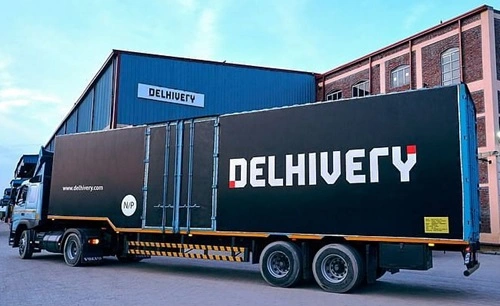An 11-year-old firm called Delhivery offers delivery services throughout India. Delhivery’s business model includes its revenue model, competition, SWOT analysis, and company plan, among many other things. They offer services like payment collecting, last-mile delivery, transit warehousing, seller-to-warehouse, and seller-to-customer shipping.
Understanding DELHIVERY
Delhivery is the e-logistics industry’s and the Indian startup ecosystem’s emerging star. 2011 brought storage, fierce rivalry, and a need for more confidence for this fledgling company. Yet, astute tactics like no membership fees and affordable shipping costs, combined with transportation, warehousing, and e-commerce service offerings, let Delhivery grow into India’s biggest B2B, B2C, and C2C logistics operator. Since its 2022 IPO, it has become a unicorn providing environmentally friendly logistics solutions.
Three of the company’s co-founders were consultants for Bain & Company before founding Delhivery. After working there for three years, they decided to take a break and try to be self-employed.
The logistics sector was the most apparent when deciding what to focus on. In a lighthearted experiment, two co-founders, Sahil Barua and Suraj Saharan, who managed a logistics company and lived across the street, sent books to one another. The logistics firm told them that although there would be a fee of Rs 250, the cargo would still be delivered the day after tomorrow. Upon closer examination, the founders discovered much room for improvement and that the logistics sector needed to be more efficient.
Delhivery began as a hyperlocal delivery firm that assisted restaurants in providing delivery services to patrons. Nonetheless, they quickly realized that e-commerce enterprises offered much more possibilities in package delivery, so they changed their focus to cater to them.
DELHIVERY Company Details
| Aspect | Details |
| Name | Delhivery |
| Founded | 2011 |
| Founders | Sahil Barua, Mohit Tandon, Bhavesh Manglani, Suraj Saharan |
| Headquarters | Gurgaon, India |
| Industry | Logistics and E-commerce Delivery |
| Services | Last-mile delivery, third-party logistics, supply chain services |
| Delivery Network | Extensive pan-India network covering urban and rural areas |
| Funding | Unicorn status with significant funding from various investors |
| Website | https://www.delhivery.com/ |
DELHIVERY’s Business Model
With a sizable supply chain infrastructure, Delhivery is one of India’s biggest B2C, B2B, and C2C logistics courier firms. The company model’s inexpensive shipping costs and free subscription were key factors in its success.
Delhivery’s core revenue streams are consumer-to-consumer, business-to-business, warehousing, truckload and partial truckload freight services, and cross-border logistics. The primary source of income for Delhivery’s package delivery service is Indian online retailers such as Flipkart, Amazon, and others. Yet, Delhivery’s parcel revenue is anticipated to move to smaller, up-and-coming direct-to-consumer e-commerce businesses that outsource logistics. In contrast, larger e-commerce operators attempt to develop in-house logistical capabilities.
Three verticals can be used to categorize the company’s services:
- Warehousing: Units present in more than 40 cities nationwide for warehousing
- Transportation: Over 2500 cities and over 8,000 pin codes are delivered to.
- E-Commerce: Linked with Opencart, Shopify, WooCommerce, and other businesses to deliver their goods.
DELHIVERY Revenue Model – How does DELHIVERY make money?
Delhivery generates income in several ways. Among the most significant ones are:
Shipment Charges
Every unit it provides generates profit from the first to the last mile. The location where Delhivery takes up a package from a merchant is referred to as the first mile. The location where the Delivery is delivered to the customer is referred to as the “last mile.”
Reducing Transportation Expenses
Delhivery uses the most economical route to minimize its transit expenses. Despite not being a direct source of income, it saves Delhivery a significant amount of money.
Orion
One of Delhivery’s most recent product launches is Orion. It is a platform for truckload freight brokerage that links shippers with truckload suppliers and fleet owners. Using internal apps, the fleet owners and registered agents compete for these services in Orion. Delhivery thus makes a healthy profit on the “Orion” bidding procedure.
Marketing Strategies
- Business model: The purpose of marketing is to raise audience awareness. Additionally, the outcome of an effective marketing plan is the audience’s conversion into consumers. As a result, Delivery decided to run several advertising initiatives to increase its clientele.
- Video Advertisements: The aim was to showcase Delhivery as the pioneer of the greatest delivery service. Thus, it produced several advertisements primarily aimed at company owners. It demonstrated how Delivery offers premium delivery services in India for tiny packages and large, bulky items.
- Going Live In ONDC Platform: An independent open network system called ONDC (Open Network for Digital Commerce) offers e-commerce tools to help buyers and sellers interact. The ONDC is a government program to democratize the nation’s e-commerce environment. To start intercity deliveries of over 18,000 pin codes nationwide, Delhivery went live on ONDC.
- Social Media Campaigns: Delhivery reached the target clients and businesses by using social media sites like Facebook, Twitter, Instagram, and so on.
Conclusion
Another well-known and prosperous Indian startup is Delhivery. It significantly altered Indian e-commerce and the logistics industry. Delhivery’s business strategy has proven to be effective. It consistently strives to uphold its mission of “delivering anything anywhere in India” despite several ups and downs.















